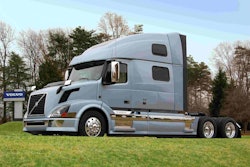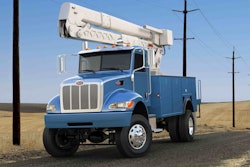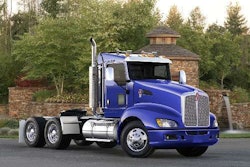
Policymakers need to step up and ensure that the trucking industry has access to affordable diesel fuel, American Trucking Associations President and CEO Bill Graves said Thursday, March 31, to members of the U.S. House.
“There is no single solution to high oil prices,” Graves testified before the House Natural Resources Committee. “We are not going to be able to either simply conserve or drill our way out of this crisis. We must do both.”
Graves said trucking will consume more than 35 billion gallons of diesel in 2011 and is on pace to spend $135.8 billion. “That’s about $35 billion more than we spent in 2010,” he said, noting that spikes in diesel costs, like the one that has added 60 cents to the cost of a gallon of fuel since the start of 2011, force fleets to pass higher costs to customers, and in some cases, force them to close.
“Many companies have difficulty recovering the full cost of rapid diesel price increases, however, eventually these higher costs are passed on to consumers,” Graves said. “In addition, as consumers are forced to spend more money on energy and their everyday essentials, they have less money to spend on consumer goods.”
While cutting demand by establishing a national speed limit of 65 mph, allowing more productive trucks, reducing congestion through investment in infrastructure and improving truck fuel efficiency is important, Graves said the United States needs to do more to increase supply in order to address fuel prices.
“The dramatic increase in the price in oil is fed by the perception that over the next few years there will be a shortage of oil,” he said. “Congress should embrace measures to increase our domestic production of crude oil.”
To do that, Graves said Congress should push the Obama administration to issue more permits to drill in the Gulf of Mexico, encourage offshore energy production off the Atlantic coast and in the eastern Gulf of Mexico, and promote the development of oil shale and coal-to-liquid and gas-to-liquid fuels. Graves also said the government needed to do more to promote the growth of natural gas-powered heavy-duty vehicles.
“[Liquefied natural gas] trucks cost almost twice as much, so a financial incentive such as a tax credit may be needed to encourage the purchase of these vehicles,” he said. “In addition, we would encourage Congress to incentivize the construction of standardized LNG refueling stations, and provide a weight variance from the federal gross vehicle weight limits for trucks to accommodate the increase in weight associated with LNG technology.”











